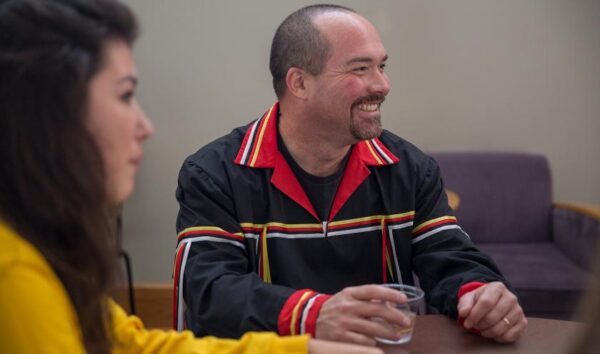
- Details
- By Native News Online Staff
MARQUETTE, Mich. — Northern Michigan University plans to use $170,000 in new grant funding to help transition its Center for Native American Studies curriculum to an online format.
The Center’s programming has traditionally been offered only on campus, but the COVID-19 pandemic has forced faculty to rethink how they delivered the course work, according to NMU.
“Because many of our Native American studies courses incorporate oral traditions and place-based learning, it is challenging to figure out appropriate ways to transform the curriculum from onsite to online,” Project Director Martin Reinhardt said in a statement. “If the pandemic has taught us anything, it is that we need to be better prepared to continue offering our courses even during life-altering circumstances.”
As well, by expanding into the online format, the programming will be available to more people, who will be able to access it on their own timelines, not necessarily in sync with the traditional in-person class format, according to the university, which is based in Marquette in Michigan’s Upper Peninsula.
The funding for the program came as part of a $40.3 million round of economic stabilization grants from the National Endowment for the Humanities (NEH) that was included in the federal CARES Act in March. The more than 300 competitive grant recipients were selected from a pool of 2,300 applications from cultural organizations that requested more than $370 million in funding.
“Over the past few months we have witnessed tremendous financial distress at cultural organizations across the country, which have been compelled to furlough staff, cancel programs, and reduce operations to make up for revenue shortfalls caused by the pandemic,” said NEH Chairman Jon Parrish Peede. “NEH is pleased to provide $40 million to preserve thousands of jobs at museums, archives, historic sites, and colleges and universities that are vital to our nation’s cultural life and economy.”
NMU’s Center for Native American Studies was launched in 1996 to prepare students for tribal engagement, education and traditional arts, language learning, community and environmental work, research and various academic pursuits.
With a curriculum based on Great Lakes Anishinaabe traditions, the university claims the Center offers the only bachelor’s degree in Native American studies in the state of Michigan. It also offers an Native American studies concentration as part of an associate degree and a Native American studies and a Native American Community Services minor, as well as undergraduate certification in American Indian education.
The Northern Michigan University funding was among more than $535,000 in grants that went to five programs that explicitly deal with Native American culture.
The other recipients were:
- Alabama Department of Archives and History — $48,003 to retain and hire staff to research, organize and document 170,000 funerary objects in its collection in order to provide access to tribes and researchers, and to ensure that the institution’s collections are in compliance with the Native American Graves Protection and Repatriation Act.
- San Francisco-based Earth Island Institute — $30,000 to retain staff and hire summer interns to identify and document private collections of Native American archival materials with a goal of devising a plan to preserve them.
- Connecticut-based Mashantucket Pequot Tribal Nation — $179,403 to hire an editor and editorial assistant to continue digitizing the Pequot Community Papers, which detail the history of New England tribal communities from 1813-1849.
- Seattle-based Burke Museum Association — $107,812 to retain three staff members who are developing educational programs and community collaboration aimed at sustaining engagement with the museum’s Native American collections and understanding Native American culture.
More Stories Like This
Bard College Center for Indigenous Studies (CfIS) Hosts Annual Symposium With Keynote Speaker Miranda Belarde-Lewis on March 9–10American Indian College Fund Announces Spring 2026 Faculty Fellow Cohort
Navajo Nation Signs $19 Million Diné Higher Education Grant Fund Act into Law
Dr. Shelly C. Lowe to Be Inaugurated as IAIA President March 26–27
Tlingit Language Courses Expand for Students to Learn With Families At-Home
Help us defend tribal sovereignty.
At Native News Online, our mission is rooted in telling the stories that strengthen sovereignty and uplift Indigenous voices — not just at year’s end, but every single day.
Because of your generosity last year, we were able to keep our reporters on the ground in tribal communities, at national gatherings and in the halls of Congress — covering the issues that matter most to Indian Country: sovereignty, culture, education, health and economic opportunity.
That support sustained us through a tough year in 2025. Now, as we look to the year ahead, we need your help right now to ensure warrior journalism remains strong — reporting that defends tribal sovereignty, amplifies Native truth, and holds power accountable.
 The stakes couldn't be higher. Your support keeps Native voices heard, Native stories told and Native sovereignty defended.
The stakes couldn't be higher. Your support keeps Native voices heard, Native stories told and Native sovereignty defended.
Stand with Warrior Journalism today.
Levi Rickert (Potawatomi), Editor & Publisher

